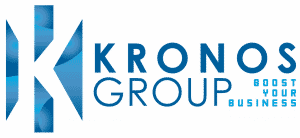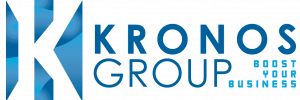How to create value for your organisation through optimised procurement and logistics management

Summary
Optimising the management of the procurement and logistics functions within your organisation can only be achieved through a mix-and-match approach of compatible strategies, starting with building a thorough understanding of your needs and leveraging technology to uplift productivity.
There on, further effectiveness and productivity can be achieved through greater collaboration within the procurement and logistics network—fostering stronger relationships with vendors and suppliers is vital to make this endeavour a success.
Studying and optimising your supply chain regularly to make improvements and take advantage of opportunities that your organisation may be presented with from time to time is also an important step to take. Setting up a tightly integrated supply chain plays a vital role in boosting the management efficiency of the procurement and logistics functions.
The procurement and logistics management functions play a vital role within any organisation, and can single-handedly determine the effectiveness of operations such as manufacturing and construction.
The processes for managing the logistics and procurement functions are responsible for ensuring that the right products, raw materials, and services are available at the right time and the right price so that they are delivered to the correct destination in a timely and efficient manner.
Optimising these processes can bring significant value to an organisation in the form of greater cost savings, improved efficiency, and better customer service, among many others. Following simple steps to improve the management efficiency of procurement and logistics can improve productivity, profitability, and risk tolerance, allowing organisations to gain an edge over their competition and increasing survivability during trying times.
Read on to discover the key strategies to create value for your organisation by optimising the management efficiency of the procurement and logistics functions.
Building a thorough understanding of your needs
The first step in creating value through procurement and logistics management is to thoroughly understand the needs and specific requirements of your organisation in the procurement and logistics space.
This means having a clear identification of which goods and services are required for maintaining an efficient operation, as well as the quantities needed, along with the time frames, delivery schedules, and lead times involved.
It also means understanding the unique requirements of your organisation, such as compliance with industry regulations or specific customer needs. This stage is to formulate strategies that craft perfectly customised logistics and procurement functions to meet the customers’ exact needs effectively.
By understanding the requirement clearly, you can ensure that your procurement function sources the right goods and services and that your logistics function is geared towards making them available at the right time, which can help you avoid unnecessary costs and improve efficiency.
Leveraging technology to uplift productivity
One of the most effective ways to optimise procurement and logistics management is to leverage technology.
This can include integrating solutions, ranging from automated purchasing systems and e-procurement platforms to tracking and monitoring tools that can help you keep tabs on your inventory and delivery status.
Utilising technology effectively can allow you to automate many of the manual processes involved in procurement and logistics, which can save time and reduce errors.
In addition, by using data and analytics tools, you can gain insights into the performance of your procurement and logistics processes, which can help you identify areas for improvement.
Fostering stronger relationships with vendors and suppliers
Another key strategy that your organisation can leverage to create value through effective procurement and logistics management is to build stronger relationships with suppliers and logistics partners.
This means developing a deep understanding of the capabilities and processes of vendors and logistics partners, as well as their strengths and weaknesses. Efforts could be made to align operations where practical for greater seamlessness and efficiency.
It also means working together to identify ways to improve efficiency and reduce costs, which could initiate further negotiations on more mutually beneficial terms, which may result in the drafting of more favourable contracts and agreements.
By building and maintaining strong relationships, your organisation can create a more collaborative and effective network for procurement and logistics throughout its supply chain, helping you achieve your business objectives.
Studying and optimising your supply chain
One of the most important aspects of managing procurement and logistics is the supply chain. This includes everything from sourcing raw materials to delivering finished goods to customers.
To create value through more impactful procurement and logistics, it is essential to optimise your supply chain. This can involve identifying and eliminating bottlenecks, streamlining processes, and implementing inventory management techniques.
In addition, by using advanced analytics and modelling tools, organisations can gain insights into their supply chain that can help identify areas for improvement.
Explore how to best create value through optimised procurement and logistics management with expert-led insights from procurement specialists
Expert-led insights from procurement specialists can ensure that you receive reliable and accurate insights and directions into how to optimise management efficiency for procurement and logistics within your organisation, to deliver maximum value.
These insights may help your organisation not only boost the efficiency of procurement and logistics, but can also help you lead procurement transformation to elevate value creation, profitability, and procurement cost management to the next level.




